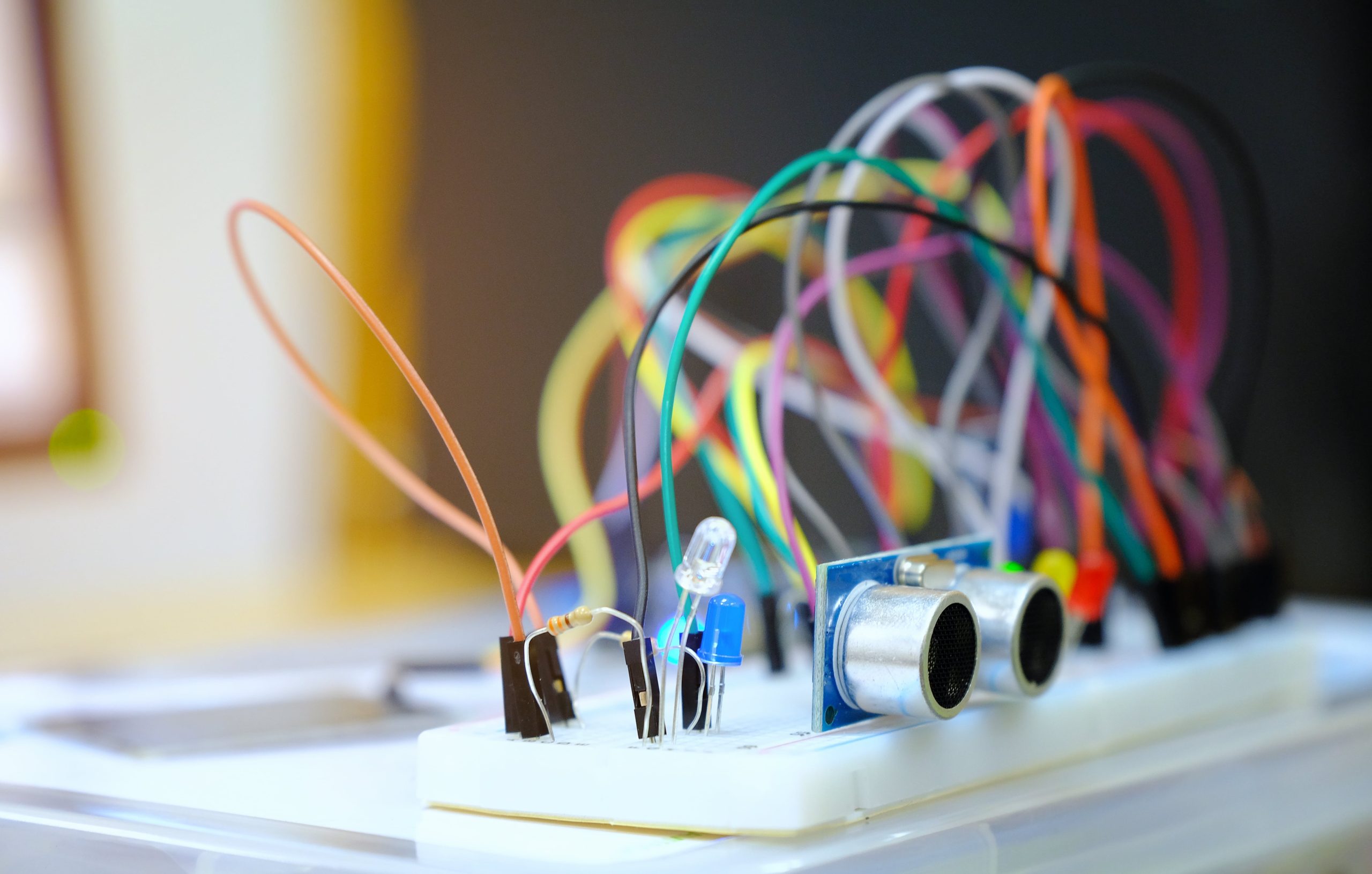In the fast-paced world of technology, having a basic understanding of electronics is becoming increasingly important for individuals involved in developing electronic hardware products. This includes not only founders of hardware startups, but also non-engineers who may be managing the various tasks involved in bringing a product to market. While outsourcing development is common, having a fundamental grasp of electronics is crucial for effectively managing the process.
By understanding the basics of electronics, these individuals are better equipped to make informed decisions, communicate with engineers, and troubleshoot issues that may arise throughout the development process. This knowledge also helps in evaluating and selecting the right technology partners, as well as ensuring that the final product meets the desired specifications. In a world driven by constant innovation, a basic understanding of electronics is a key asset for anyone involved in the development of electronic hardware products.
Why Should Everyone Learn Basic Electronics?
In today’s technology-driven world, basic electronics skills are becoming increasingly essential for everyone, regardless of their profession or career path. Here are five reasons why learning basic electronics is important:
1. Career Advancement: With a basic understanding of electronics, individuals can stand out in job searches and open up a wide range of career opportunities. Professions such as electrical engineers, electronic engineers, and technicians heavily rely on foundational knowledge of electronics to work with electrical systems, electronic devices, and circuitry.
2. Practical Applications: Basic electronics skills have practical applications in everyday life and various fields of work. From troubleshooting electronic circuits to understanding how electronic components function, these skills can be employed in industries such as manufacturing, telecommunications, automotive, and more.
3. Meeting Job Requirements: Many job positions, even those that may not seem directly related to electronics, now require a basic understanding of electronic systems. Industries like IT, robotics, artificial intelligence, and technology in education can benefit from these skills when working with electronic devices and digital circuits.
4. Personal Projects and Hobbies: Learning basic electronics empowers individuals to engage in rewarding experiences. It helps individuals create, build, and repair electronic projects, whether it’s a simple home automation system or an elaborate embedded system.
5. Foundational Skills: Basic electronics fosters critical thinking skills, enhances problem-solving abilities, and improves communication skills. These skills are transferable and can be applied in any profession, making individuals more adaptable and versatile in today’s fast-paced and ever-evolving job market.
Why Should Everyone Learn Basic Electronics? One compelling reason lies in the accessibility of electronics content platforms. Today, thanks to the digital age, learning basic electronics has never been easier. A multitude of online platforms, tutorials, and electronics educational resources are readily available at your fingertips. These platforms offer a wealth of knowledge, from beginner-friendly introductions to advanced guides, making electronics education inclusive and accommodating for all skill levels. Whether you’re a student, hobbyist, or professional in another field, these resources empower you to acquire invaluable skills that can enrich your life and career, all from the comfort of your own screen.

1. Electrical and Electronic Components
Understanding electrical and electronic components is crucial in the realm of electronics. These components are the building blocks that form the basis of electronic circuits. Without a basic understanding of these components and how they function, it would be nearly impossible to comprehend and work with electronic systems effectively.
Resistors, capacitors, diodes, transistors, and inductors are some of the fundamental components found in electronic circuits. Resistors regulate the flow of electrical current, allowing us to control the amount of current that passes through a circuit. Capacitors store and release electrical energy, acting as temporary power storage devices. Diodes allow current to flow in only one direction, providing crucial rectification and voltage regulation. Transistors amplify or switch electronic signals, making them indispensable in amplification circuits and digital logic. Inductors store energy in the form of a magnetic field, aiding in energy transfer and filtering.
These components work together to create intricate electronic circuits that power our everyday devices, from smartphones to computers and everything in between. By understanding the functions and characteristics of resistors, capacitors, diodes, transistors, and inductors, individuals can gain a deeper appreciation for the inner workings of electronic systems.
Whether one is interested in pursuing a career in electronics or simply wants to tinker with gadgets as a hobby, comprehending the roles of electrical and electronic components is essential. It forms the foundation upon which one’s electronic knowledge and skills can be built upon, enabling greater understanding and innovation in the world of electronics.
2. Basic Understanding of Electrical Power and Current
A basic understanding of electrical power and current is essential for anyone interested in electronics and electrical engineering. These concepts form the foundation of power delivery systems, power generation, and power distribution.
Electrical power refers to the rate at which electrical energy is consumed or produced. It is the driving force behind the functioning of electronic devices and systems. Without a basic understanding of electrical power, it would be challenging to design efficient power delivery systems.
Electrical current, on the other hand, is the flow of electric charge. It is the movement of electrons through a conductor and is measured in amperes (A). A basic understanding of electrical current is crucial for designing and improving power generation and distribution systems. It allows engineers to calculate and optimize the amount of current needed for different electronic devices and systems.
Furthermore, a basic understanding of electrical power and current is essential for using electronics for power conversion. Many electronic devices, such as inverters and converters, rely on the understanding of power and current to efficiently convert electrical energy from one form to another.
3. Essential Practical Experience with Electronic Circuits and Devices
Practical experience with electronic circuits and devices is essential for everyone interested in electronics and electrical engineering. While theoretical knowledge gained from reading schematics and using tools like multimeters is crucial, hands-on experience in building and troubleshooting electronic circuits can solidify understanding and skills.
Building circuits allows individuals to apply their theoretical knowledge and see how different electronic components work together to create functional devices. This hands-on experience provides a deeper understanding of circuit design, component selection, and the interplay between different elements. By physically assembling circuits, individuals can develop critical thinking skills and problem-solving abilities, as they encounter challenges and find solutions.
Furthermore, troubleshooting electronics is an integral part of working with electronic circuits. When faced with non-functioning circuits, individuals with practical experience can identify and resolve issues more effectively. They gain the ability to trace signals, identify faulty components, and make necessary repairs. This ability to troubleshoot will not only enhance technical skills but also improve communication skills, as effective troubleshooting often involves clear and concise explanations.
Overall, practical experience with electronic circuits and devices is vital for reinforcing knowledge gained from reading schematics and using tools. It allows individuals to gain a deeper understanding of circuit design and troubleshooting, while also developing critical thinking and communication skills.
4. Communication Skills Required for Working as an Electronics Engineer
Effective communication is essential for electronics engineers as they collaborate with colleagues, convey technical information to non-technical stakeholders, and present project proposals and findings.
Clear written and verbal communication is crucial for electronics engineers to effectively communicate their ideas, plans, and progress to their team members. This ensures that everyone is on the same page and can work together efficiently towards a common goal. Additionally, electronics engineers often need to convey complex technical information to non-technical stakeholders, such as clients or managers. Being able to translate complicated concepts into layman’s terms is crucial in ensuring that the information is understood and decisions can be made effectively.
Part of effective communication is the skill of active listening. Electronics engineers must listen attentively to their colleagues and stakeholders to fully understand their needs, concerns, and expectations. This allows them to address any issues or questions effectively and ultimately deliver a solution that meets everyone’s requirements.
5. Critical Thinking Skills Needed for Engineering Programs and Degree Programs
Critical thinking skills are essential for individuals pursuing engineering programs and degree programs, particularly in the field of electronics. These skills involve analyzing and evaluating information, reasoning logically, and making informed decisions. Here are five reasons why critical thinking skills are crucial in these programs:
1. Problem-solving: Critical thinking skills enable engineers to tackle complex problems by breaking them down into smaller, more manageable parts. This approach allows them to identify the root cause of an issue and develop effective solutions.
2. Decision-making: Engineers often encounter situations where trade-offs must be made between different design options. Critical thinking skills help individuals weigh the pros and cons, consider the implications, and make informed decisions that align with project goals and constraints.
3. Innovation: By questioning established norms and exploring alternative approaches, critical thinkers can generate innovative solutions. This mindset is especially valuable in the ever-evolving field of electronics, where new technologies and advancements continually shape the industry.
4. Troubleshooting: Being able to identify and address problems in electronic systems requires a strong analytical mindset. Critical thinkers can systematically diagnose issues, consider multiple potential causes, and apply appropriate troubleshooting techniques to resolve them efficiently.
5. Continuous improvement: Critical thinking skills encourage engineers to reflect on their work, seek feedback, and continuously refine their designs and processes. This iterative approach promotes learning, growth, and the ability to adapt to changing technologies and industry demands.

Conclusion
In conclusion, basic electronics skills are essential for everyone due to their significance in various aspects. As discussed, these skills enable individuals to tackle complex problems by breaking them down and developing effective solutions. They also help in making informed decisions and fostering innovation by questioning established norms. Furthermore, these skills are crucial for troubleshooting electronic systems, as they allow for systematic problem identification and resolution.
Lastly, basic electronics skills promote continuous improvement by encouraging engineers to reflect on their work and adapt to changing technologies. Learning these skills brings benefits such as understanding electrical and electronic components, gaining practical experience with circuits and devices, developing communication skills, and fostering critical thinking abilities, especially for engineering programs. By acquiring these foundational skills, individuals can unlock a world of opportunities and pave the way for a successful career in the field of electronics.

